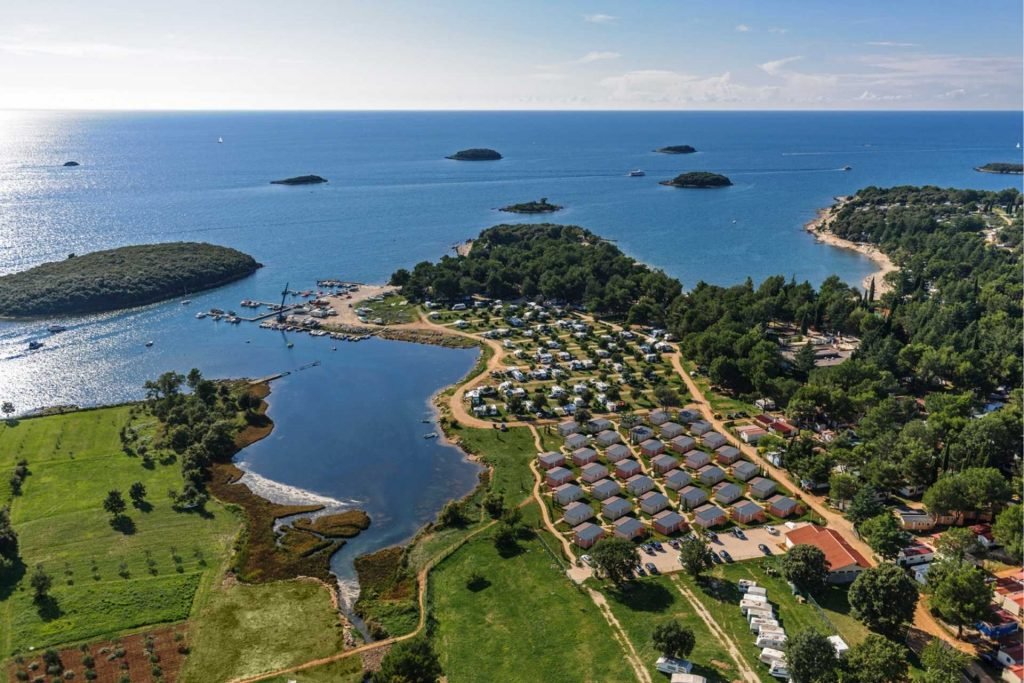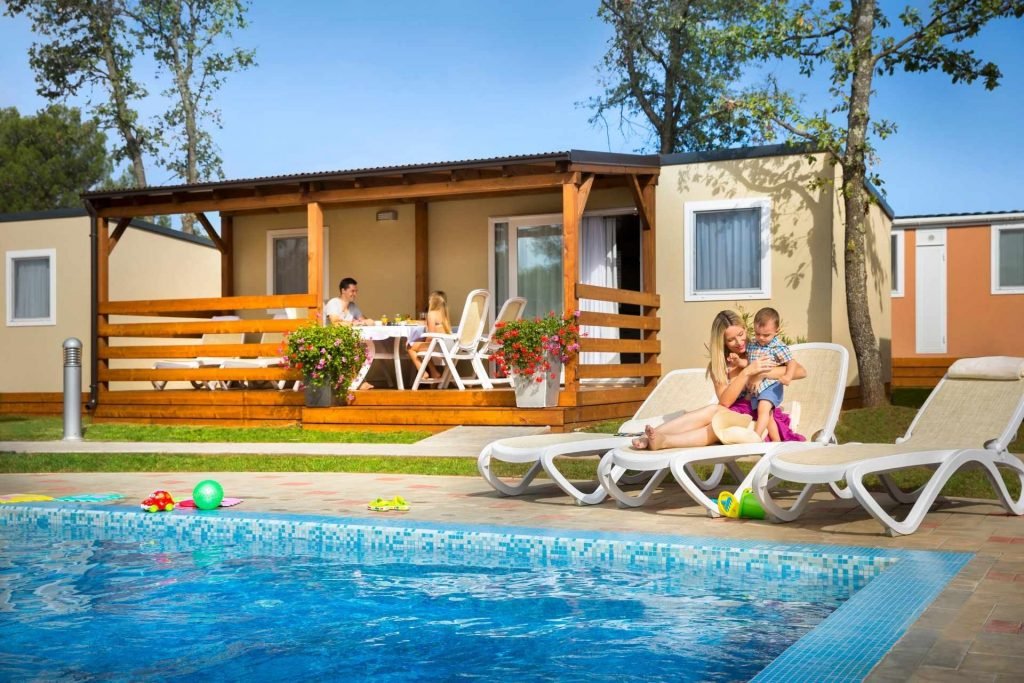Campsite Valkanela is located between the small towns of Vrsar and Funtana, on the western coast of Istria, the most popular camping region in Croatia. In the pre pandemic period Istria recorded 9,9 million overnights in its roughly 100 campsites, which accounts for 51% of all camping overnights in the entire country. The campsite Valkanela itself has a capacity of 6.000 persons and is spread over 56 hectares of land. Its accommodation offer includes spacious and equipped pitches as well as mobile homes with additional amenities such as pools. The rich offer of the campsite is visible in its catering and animation facilities too and with all the aforementioned infrastructure, the need for being as much universally accessible as possible is becoming more important by the day.

It is not only people in wheelchairs who should be taken into consideration, but generally people with reduced mobility, such as young families using strollers, people with sensory limitations (sight and hearing), elderly people, people with temporary disabilities etc. The ability to access and use facilities is the fundamental prerequisite in order to allow all potential guests to take in consideration a specific campsite. It is of paramount importance that attention must be paid to all holiday aspects and to all offered services. The accessible tourism market is estimated at 127 million people in Europe and might account for up to 20% of a tourism company’s turnover. Open-air facilities require a specific commitment to achieve quality-, structural- and service levels that could adequately meet the needs of people with disabilities. Employers and employees often find it difficult to understand the requirements of this category of guests, which indisputably has a high ethical, social and, above all, economic value.

By understanding all the challenges faced both by the guests and the campsite management, campsite Valkanela was the site of a detailed audit performed by Village4All, an Italian specialist in accessible tourism. The audit at the campsite Valkanela was necessary to identify all possible improvements aimed at offering accessible hospitality to the greatest number of customers with “accessibility needs”. The goal of this report is not to comply with regulations on the removal of architectural barriers, but to offer the greatest possible autonomy and independence by identifying a list of measures that can be put in place at different times, depending on the development and strategic plans that campsite Valkanela decides to undertake. For example, by defining development strategies towards target customers such as seniors, people with visual impairments, motor disabilities and similar. For each of the assessed areas, a list of maintenance or intervention indications was composed, these included the reception and check-in process, restaurants, grocery store, sanitary facilities, accommodation units, swimming pools, beaches and pathways. Together with the audit report, the campsite was also presented with general guidelines for accessible camping where a couple of main postulates were highlighted. Among them was the need to provide customers with reliable information on the state of the facilities and on the campsite’s ability to provide adequate services, including customized services.
It is therefore insufficient to make a general declaration of willingness to welcome people with disabilities or, even worse, to claim that facilities are accessible simply because they are equipped with a hospital-style bathroom. It is also not helpful to rely on the classification system generally used by public administrations, which, when compiling directories, simply include the logo of the little man in a wheelchair, intended to ‘sum up’ the accessibility of the facilities, as well as all needs of people with disabilities. The staff must have appropriate skills to communicate with guests with disabilities. Cases of discrimination very often occur due to a lack of knowledge about how to behave properly. It has to be stressed that positive communication has to be used at all times as this will make any guest feel comfortable. Most of these positive communication guidelines are appropriate for any situation, regardless of whether the campsite employees are dealing with people with disabilities or not.
The general guidelines for accessible camping can be viewed on the link: https://www.camping.hr/cmsmedia/dokumenti/Guidelines-Accessible-Camping-Guidelines-ENG.pdf?utm_source=website&utm_medium=post&utm_campaign=t4a-accessible-camping-guidelines-eng

From a pure nature type of holiday enjoyed mainly by the younger generations, camping has become a choice where comfort, quality service and modern facilities are intertwined with the natural surroundings and local tourism offer. Accessibility and usability became an advantage, urging campsites to meet customer needs. At the same time, the modifications in their offer will help the preservation of the values of modern tourism.

Welcoming all guests in an adequate way is the first step towards service quality, accompanied by the usual qualities of sensibility and availability, the specific knowledge learnt during this process, its solutions, and techniques.



Master of sustainable outdoor hospitality management is a result of Eu founded project CAMPMASTER:
Project title: Development of european curriculum in the field of sustainable camping resort management
Project ID: KA203-E-1423370
Project duration: from 01.10.2020. until 30.09.2022.
